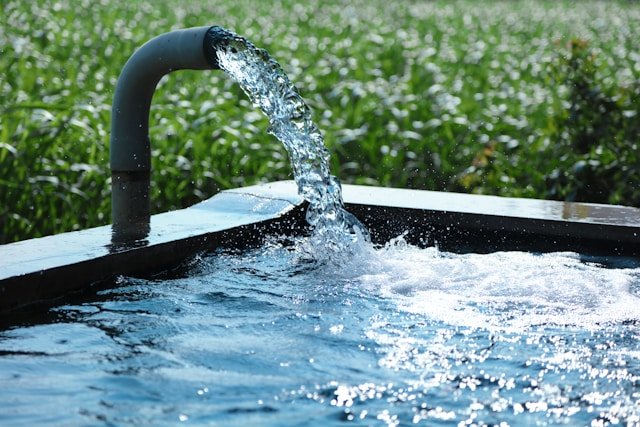Crafting the Perfect Home Water Filtration System

Why Water Filtration Matters
Water quality is a pressing issue globally, affecting the health and well-being of millions. Clean drinking water is fundamental for hydration and preventing diseases that can arise from waterborne pathogens. Protecting your home’s water supply is more critical than ever with contaminants ranging from bacteria and viruses to industrial pollutants. A home filtration system is your first defense against these potential threats. For instance, customized water filtration systems Utah are specifically tailored to address unique regional water quality issues, consistently ensuring safe and clean water access.
According to the Centers for Disease Control and Prevention, efficient water treatment may considerably decrease the amount of dangerous pollutants. By lowering the transmission of waterborne diseases, purchasing the appropriate filtration system protects your health and advances public health. This preventative measure is especially vital in areas where water infrastructure may not sufficiently eliminate all health risks.
Types of Water Filtration Systems
When considering a water filtration system, you’ll find several options, each with distinct mechanisms to tackle specific contaminants. Understanding these systems is crucial to making an informed choice that best meets your needs:
Activated Carbon Filters
These filters use activated carbon to remove chlorine, sediment, and volatile organic compounds (VOCs), enhancing water taste and odor. They work by adsorption, where contaminants adhere to the carbon surface, thus purifying the water.
Reverse Osmosis Systems
Renowned for their efficiency, reverse osmosis systems force water through a semi-permeable membrane, blocking many impurities, including heavy metals, nitrates, and fluoride. This process ensures a highly purified water output for drinking and cooking.
Distillation Units
These units purify water by heating it to create steam and condensing it into a liquid, leaving impurities behind. While distillation is effective against microorganisms and minerals, it can be slower than other methods and is less efficient in handling VOCs.
Factors to Consider When Choosing a System
Several factors should guide you in selecting a water filtration system. Your existing water quality is paramount and can be determined through testing. This will help pinpoint the contaminants you need to address. Additionally, household size and water consumption patterns influence the system’s capacity requirements. Consulting the Environmental Protection Agency guidelines can clarify suitable filtration systems tailored to different needs.
Your budget is another critical consideration. Some systems may have a higher upfront cost but lower maintenance requirements, offering long-term savings. When making your choice, be sure also to consider the ease of filter replacement and the availability of parts. As you navigate these decisions, engaging with knowledgeable professionals can offer insights and reassurance.
Installing Your Water Filtration System
The type of system has a considerable impact on the installation procedure. For instance, simple models like countertop filters are often DIY-friendly and entail little more than attaching to a faucet. In contrast, whole-house systems, designed to filter water at the point of entry, require professional plumbing expertise to ensure they interface correctly with your existing water supply.
- Start by reviewing the installation manual and preparing all necessary tools.
- Inspect all components upon receipt to ensure no missing or damaged parts.
- Choose a suitable location, factoring in space and access for future maintenance tasks.
Taking the time to plan and execute installation carefully helps prevent future problems and contributes to the efficient functioning of your water filtration system.
Maintaining Your Water Filtration System
Regular maintenance is necessary to guarantee that your system runs well. This typically involves periodic filter replacements, which are vital to maintaining water quality and system performance. Each system will have specific maintenance intervals outlined by the manufacturer.
Performing routine checks for leaks and ensuring connections remain tight can prevent system failures. Equipping yourself with basic troubleshooting skills can save money and extend the system’s lifespan. Creating a maintenance schedule helps ensure these necessary tasks aren’t overlooked.
Troubleshooting Common Issues
Even with careful maintenance, you might encounter occasional issues such as diminished water flow, odd tastes, or leaks. Timely resolution of these problems keeps them from becoming more serious ones:
- If water pressure drops, check and replace clogged filters.
- Inspect connections and seating for any signs of leakage.
- Persisting problems may require professional diagnostics, particularly when one is unfamiliar with system intricacies.
Knowing how to handle these problems can ensure that your filtration system continues operating efficiently without experiencing major outages.
Additional Benefits of Home Water Filtration
Beyond ensuring health and safety, home water filtration offers numerous other advantages. For instance, it improves the overall taste and quality of water, enhancing both direct consumption and water used in cooking. Additionally, reducing reliance on bottled water can significantly lessen environmental impact by reducing plastic waste and pollution.
Filtered water also contributes to better appliance longevity by reducing scaling and mineral buildup, which can damage coffee makers, kettles, and similar appliances. Over time, this extends the life of such appliances and reduces your overall water-related expenses.
Final Thoughts
Investing in a comprehensive home water filtration system is a proactive approach to health and environmental stewardship. Understanding your specific needs and researching thoroughly position you to select a system that benefits your household precisely. Regular maintenance and timely troubleshooting ensure its effectiveness and longevity, providing peace of mind and a safer, more sustainable lifestyle.




